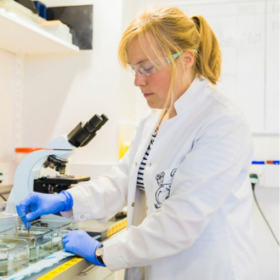I’ve been having a lot of discussions about space recently and learning more about it than frankly I really wanted to. But it’s got me thinking about a lot of things in academia, how they work, how much they cost and what we might think about changing in the future. I was recently told that if I was interested in changing a system because I thought it was broken or unfair, I should never work in government or academia. Which means this article is going to do me no favours, probably not make me any friends, sound a little whiny and not solve anything. But I might feel better for getting it off my chest to you good people.
As per usual, I spoke to a friend recently who recounted a story about a neighbour of theirs. It’s a depressingly familiar one in academia and I actually know someone in a similar situation. Scientist, mid-fifties, no secure contract but has been working as a researcher for the University for at least twenty years. The department won’t fund a full-time contract, they have to pull in grant money or help their PI pull in grant money or they will be unemployed in six months. They’re now in their mid-fifties so have edged their way up the pay scale over all their years of service and so their PI is not necessarily incentivised to keep them when they could get a junior post-doc for about 10k less. Their expertise and experience are not valued and are likely to be wasted. And more to the point, the department’s lack of investment in them makes them feel worthless.
But it all comes down to money, not enough of it to go around, is what we’re always told.
Now at the moment, my commute around Oxford is blighted by roadworks caused by the erection of several new buildings. Like, brand-new. Not ‘we knocked down this old one because it’s full of asbestos and replaced it’ buildings, although there are definitely one or two of them, but totally brand new, from scratch, nothing was here and now there’s a building, buildings. Which means there’s enough money to put up a whole building. But not to pay this chap who’s dedicated over twenty years of his career to you.
And actually, the buildings per se don’t really bother me. The University can put up as many buildings as it likes, it’s their money. What bothers me is that they’re going to get filled with contract researchers, because that’s what the UK runs academia on. And those contract researchers are going to come in and start a bunch of projects and get all het up and excited about some new shiny aspect of biology hitherto unexplored. Then they’re going to run out of funds and what’s going to happen? These two examples are some of what’s going to happen.
Example one. I know of two expensive pieces of unnamed equipment which are currently languishing, unused, around the University, because nobody will pay to get them fixed. I say I know of two but that’s only because I went looking for them, I suspect the actual number is way higher than two. A grant comes in with equipment on it, the person buys it, uses it for their research and then runs out of funds to fix it. It sits around, gathering dust. The next grant appears but there’s no budget here to fix old equipment and definitely no budget to buy new so it sits around a little more, gathering more dust, but it’s needed for this grant so they seek out money to buy a new one because this one is dusty and old now. Why fix it for hundreds of pounds when we could apply for thousands and get a shiny new one?
I actually acquired my cryostat this way. I had no access to a cryostat, I used one in a different building and the lab manager said at one point they were replacing it because it was ‘too old for a service contract’ and I said ‘but it works fine, what are you doing with it?’. Chucking it and getting a new one, of course. ‘Erm….can I have it?’ Much emailing buildings managers later and a slightly old but trusty cryostat was wheeled through the doors of my lab. I have spent a couple of hundred quid fixing some minor issues but otherwise it’s been working perfectly for years.

According to a study by the RAND Corporation, approximately 28% of research projects funded by major grant-giving organisations fail to produce significant, publishable results due to issues such as funding gaps, project mismanagement, and administrative inefficiencies.
Example two. There are currently at least three papers I know of which are unfinished because the researchers’ contracts have finished and they’ve gone elsewhere to do other things. As with the equipment, I say I know of three but the chances are this is in the thousands across the UK. I suspect you’re thinking of one right now. Junior researchers finish their PhD and go off to their first post-doc in a different lab, doing a different project and suddenly it’s not their priority. Medics do a PhD and then go back to medicine, thinking somehow they’ll be able to write lab papers and be a full-time doctor at the same time. Researchers desperately try to get money for a project but fail and have to leave to get a new job. Or they try desperately to get money for a project and fail but instead get some for a different project and shift their focus. Or they’ve been at their job for eight years and suddenly get offered a lectureship at another University. Life happens and because of the contract nature of universities, there is very little continuity.
But someone funded that. Whether it was the taxpayer or a charity or an industrial partner. And very few of them seem to require any kind of follow-through. There are reports but because of our lack of negative results reporting and lack of registered projects we don’t need to say what we’ve done for three years. And now the three years are over and we’ve got a new job and a new project we don’t want to focus on the old stuff.
Aside from projects and people and bits of equipment, the other wasted resource in academia is space. I’ve been having too many conversations about space recently. Who owns what space, how much space people can have, how much they want, what they do with it, how much it costs. I found out that a large, two-lab footprint (approximately eight research groups, maybe 40-60 people, possibly more it’s not overly clear) costs £700k in rent each year. Space is expensive. But, as I discussed with a couple of colleagues in different universities, so much of it seems to be empty these days. One colleague up in Scotland asked whether ‘everyone in your university just didn’t come back after the pandemic either?’ I have local colleagues frequently telling me their corridor is ‘dead’ most of the time, that their lab space is often just them. I have a lab round the corner from me that’s big enough to take about ten or so researchers and frequently only has one. I’m often the one turning the lights on at 11 in the morning when I go in to develop a Western.
And this is largely because the way we do a lot of research has changed. We’ve realised more than before that we can write our papers from home, which is great, I too enjoy being closer to my fridge. But more than that, there’s been a huge upswing in the number of projects looking at big data. Taking one set of mice and doing some fancy transcriptomics on them and then spending two to four months to analyse the data, then coming back in and repeating it. What this means is that ‘wet lab’ projects are now more often only about 10% wet-lab and 90% analysis, whereas they used to be more like 90% wet-lab, 10% analysis.
Despite the fact that corridors echo to a lack of footsteps, labs lay in darkness until midday when someone comes in to sort through their antibodies and that old Luminex continues to gather dust in the corner, we are still arguing over space.
There is still not enough of it to go around. I’m finding it weirdly frustrating that I frequently bump into people who say their corridors are ‘dead’ and others who say they’ve been banned from getting more than one student because there’s not enough space to take them all. I feel like saying ‘look….that lab round there, 90% of the time has nobody in it, go use that space’ but you can’t, because that space belongs to someone.
I’m a roamer. I like to nose around buildings until I find bits of kit I want to use and people I want to interact with. It means I have access to quite a lot of buildings and have generally found access to all the bits of kit I need without having to buy any of it. But this has taken time because getting access to some buildings round here is slightly more challenging than getting access to Fort Knox. I’ve even acquired access to a totally different university so I can do some cell culture in peace. I’ve found that at least 80% of people are really friendly and will happily budge up and give you room and lend you things. It’s the other 20% who are proving a challenge to everyone.
And I’m wondering whether academia and academic funders need to rethink how they structure everything going forward. Sure, we need a little bit of space to stick a fridge and a freezer but ovens and cell culture hoods and PCR machines and so forth are things that lots of people have so why can’t we share a little more? And I suspect the answer is, as always, because money. Money means this is mine, and not yours. Money means I have fifteen people written in to my next grant so I will need all of that in six months’ time when they tell me the outcome. But what if you don’t get it? What is going to happen to that fifteen-person space? This is always going to be a problem because almost nobody is kept on permanently. Nobody is given a lab space for five people and then given five people to work for them for the next forty years, like in a normal office job. But given the redundancy and the dead equipment, and the expensive languishing space, and the expensive unfinished projects wouldn’t it be a bit nicer, and a bit more economically friendly, if (like many of my lovely friends have with me) we were all made to share a little bit more?

Dr Yvonne Couch
Author
Dr Yvonne Couch is an Alzheimer’s Research UK Fellow at the University of Oxford. Yvonne studies the role of extracellular vesicles and their role in changing the function of the vasculature after stroke, aiming to discover why the prevalence of dementia after stroke is three times higher than the average. It is her passion for problem solving and love of science that drives her, in advancing our knowledge of disease. Yvonne shares her opinions, talks about science and explores different careers topics in her monthly blogs – she does a great job of narrating too.

 Print This Post
Print This Post






